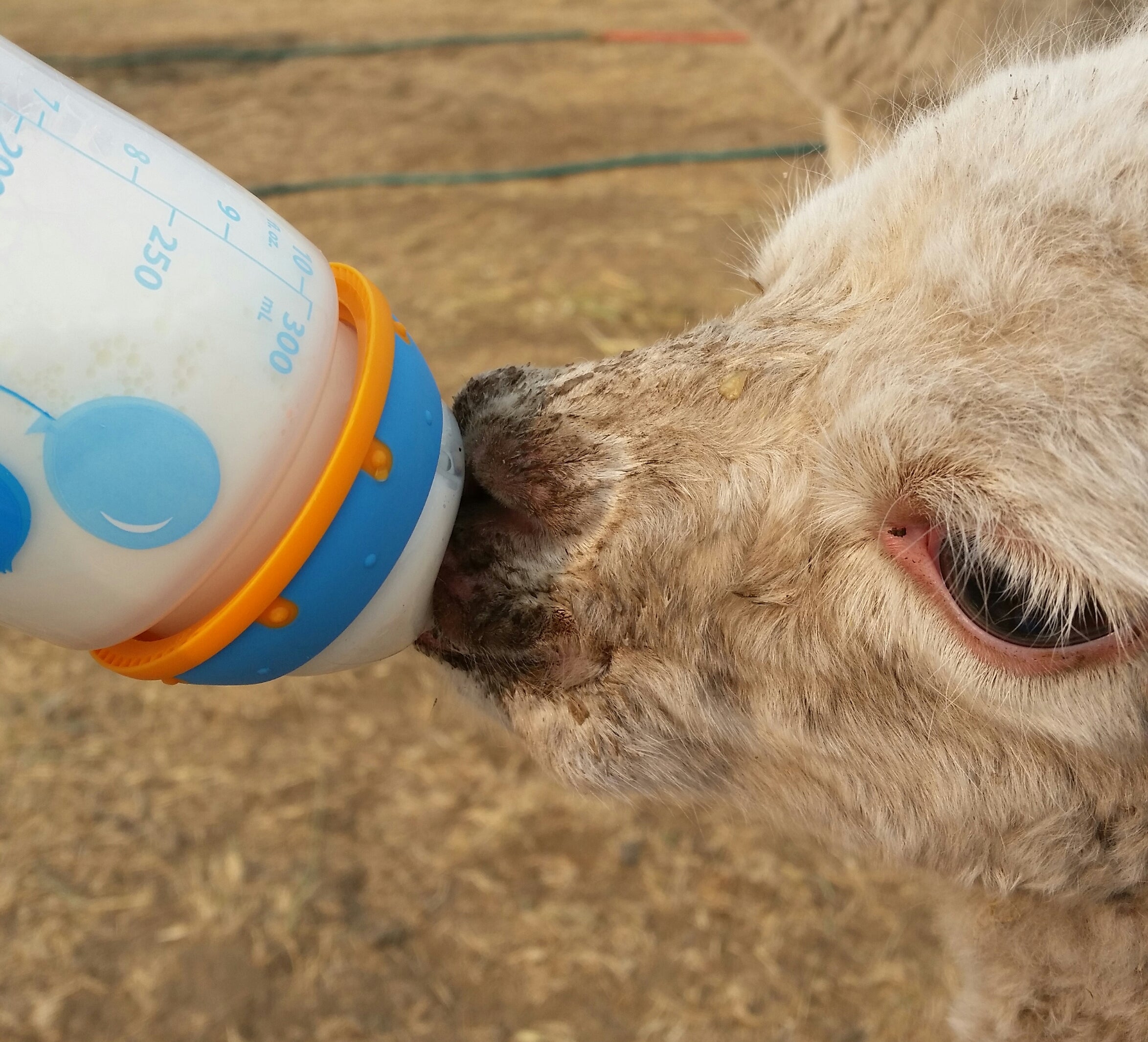Why is colostrum so important for alpacas?
Colostrum is essential for newborn alpacas to survive. A new born, may it be a human baby or an animal, needs passive immunity. That means it has to get antibodies to protect it from infections. Antibodies, or Immunoglobulins, are proteins and can be bound to antigens like bacteria or virus surface proteins. They fit like a key into a lock, meaning they are absolutely specific. These antigen-antibody complexes can be targeted by specific immune competent white blood cells to eliminate them. This process is essential to survive.
In contrast to humans, alpacas' placenta is not able to allow maternal antibodies to pass it.
When an alpaca baby is born, it doesn?t have any antibodies. It is unprotected against any antigens and will develop infections up to septicemia and will die. Alpaca newborns get antibodies from the first milk of their mother - the colostrum. These antibodies can pass the mucosal barrier of the intestine within the first 8 - 15 hours after birth. Then the barrier closes and there is no chance anymore to acquire maternal antibodies. Using this time window is life-saving!
In case the mother is not nursing or she doesn?t have sufficient amount and quality of colostrum we have to substitute it timely. 10 - 20% of the birth weight is the required amount of colostrum within latest 15 hours.
How can we substitute colostrum?
The colostrum of the first choice is the colostrum of the mother because it contains the antibodies against antigens prevalent on your farm. We can try to milk the mother.
If this is not possible we can administer bovine colostrum by a syringe or bottle. Be careful to act as sterile as possible under the given circumstances. Bovine colostrum is commercially available. ?It is available as a powder and can be stored. The manufacturing process makes it possible to contain a sufficient amount of antibodies.
A more complex but also more effective procedure is to give a plasma transfusion. Plasma is the fluid left when you remove all cellular components of blood. Plasma contains antibodies. It is available from the vet. The best choice is to prepare and store your own plasma because then you transfer the antibodies being relevant for your farm. A healthy animal serves as a blood donor, the plasma is prepared by a vet clinic, and you can keep it frozen. Plasma can be administered via an iv line or into the abdominal cavity. Both procedures have advantages and disadvantages.
http://www.bozedown-alpacas.co.uk/alpaca-care/crias-colostrum-and-plasma/

